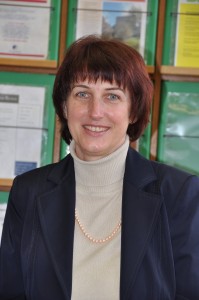 Zdenka Ženko Ph. D. is Assistant Professor of Innovation Theory and System Theory at the University of Maribor, Faculty of Economics and Business, Slovenia. She teaches courses in innovation management, system theory, methods for creative thinking and decision making, research in entrepreneurship. Her research includes systemic approach to innovation management, creative thinking and deciding, diffusion processes with social responsibility. She worked in companies in five countries. She published +170 contributions in +10 countries.
Zdenka Ženko Ph. D. is Assistant Professor of Innovation Theory and System Theory at the University of Maribor, Faculty of Economics and Business, Slovenia. She teaches courses in innovation management, system theory, methods for creative thinking and decision making, research in entrepreneurship. Her research includes systemic approach to innovation management, creative thinking and deciding, diffusion processes with social responsibility. She worked in companies in five countries. She published +170 contributions in +10 countries.
Prior Experience outside of Education
Summers 1984-1985 AIESEC and IAESTE training in Check Republic, Greece, and Belgium
Jun 1986 – Oct 1987 Apis Šentilj, marketing researcher
Oct 1987 – Jan 1988 Inštitut Jožef Štefan, Ljubljana, librarian
Jan. 1988 – Mar 1989 Lek Ljubljana, Marketing manager and Area Manager for Revlon
Oct 1990 – Nov 1991 ASUCLA, Los Angeles, Office Manager Trainee
Apr 1993 – May 1994 USB Hotel, Development Company, Ljubljana, Consultant
Jun 1994 – Feb 1999 UM EPF, Young researcher
Jul 1999 – Oct 2000 Tehnološki transfer, Senior Consultant
Nov 2000 – Univerza v Mariboru, Ekonomsko-poslovna Fakulteta, Assistant Professor
1. Can you briefly describe your field of research?
With globalization the impact of our human activities increased. So is our reality more complicated and complex and we can hardly manage it. With increased amount of knowledge our specializations became more narrow. Systemic thinking and acting increases the possibilities of acquiring right information, accepting right decisions and achieving our goals. Creative processes should be supported with creation and maintenance of creative environment and selection of methods of creative thinking and decision making. The process from idea to invention and innovation has to include diffusion and needs management. We try to study these processes and define which inventions have the potential to be developed into innovation. The difference is huge. Our understanding is that innovations appear in all areas of human activities. As an economist I am mainly concerned with the ones in services, products and society.
When socially responsible thinking, sustainable development and ethics are taken into consideration, the process from idea to invention and innovation can be beneficial for society.
2. What fascinates you about cybernetics/systems research/system theory?
Dialectical system theory reminds me that objective reality needs to be always considered. That we have a great responsibility when only the most important views are selected to define my dialectical system. That as a researcher, decision maker or human being I am always only narrow, specialized and subjective. That science, laws and scientific discoveries are changing all the time.
When the law of requisite holism is respected our activities strive to be close to holistic and with some reductionism achievable at the same time.
3. Where do you see or would like to see the field heading? What changes would you like to see?
The system theory should have more students and the methods of systemic thinking should become more commonly practised in politics, companies and our everyday activities. Invention processes should move away from (greed) profit driven to innovative processes supporting the social development.
4. What impact does your field of research have on society? What practical application for society does it have? Do you see practical applications in your own life? Can you give examples?
Systemic thinking makes my life more manageable. Some co-workers appreciate the clear understanding (due to agreement on most important views to be considered), structure and procedures in our work. In my private life it appears that due to more systemic thinking I can perform more tasks than some other people. Because of our definition of innovations I am always questioning what are the benefits; is it ethical, responsible, sustainable. Value system is in my focus. Also my children learned (mostly by observing) these type of thinking, setting their goals and managing their life.
5. What’s a scholar/writer, whose work inspires you in your own work?
I have many areas of interest. There are many authors, scholars I read, respect, think about their ideas, theories, contributions… I do not want to be unfair so I will not name just a list of them. My great mentor at school remains Prof. Ddr. Matjaž Mulej. There are many concepts which I accepted from him. One of them took me many years to at least partially understand: people who disagree with you are valuable, since they can contribute different viewpoints.



